As far back as 75,000 years ago, people have been accessorizing themselves with different types of jewelry and ornamentation. The downsides are that some jewelry manufacturers come at a very high price, not just for the environment but also for the individuals who make it.
Today, the question remains: How can we continue to accessorize while keeping ethics and environmental concerns in mind?
In this article, we’ll look into all things about sustainable jewelry.
What Makes Jewelry Sustainable
When we look for jewelry that is good for the environment, we look for many things. What does it consist of? Can you keep wearing it for a long time? The transparency of the supply chain is critical to us. We want to ensure that the person who makes the jewelry is well-treated.
What Materials To Use for Sustainable Jewelry
In terms of materials jewelry use, we like to look for things like recycled metals and lab-grown gems. We already have enough gold and silver on Earth to be able to reuse them instead of mining for more, and brands are taking advantage of that.
Also, there are many unethical ways to mine precious gems, so sustainable companies are starting to make their own gems in labs, reuse old gems, or work with Fairmined sourcing (as well as other sustainable certifications).
What To Look For in Ethical and Sustainable Fine Jewelry Lines
1. Traceable Diamonds and Gems
Traceability in diamonds is complicated. An increasing number of colored and green diamonds are sold with little transparency. The 4C’s of diamonds are probably the best way to gauge a diamond’s value, but consumer education is critical. Some diamond grading labs use barcodes for consumers to search online to find out more about a stone, while others offer an online database where customers can fill out reports and add to the record of the gem’s history. Some jewelers provide partial disclosure of each stone they sell.
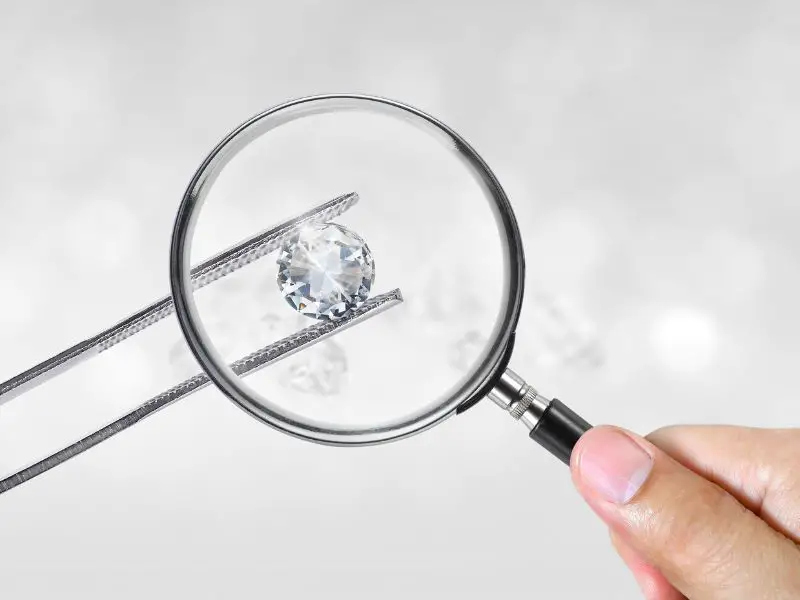
It’s not surprising that lab-grown diamonds, which are less harmful to the environment, are gaining more and more acceptance (although, they can be less transparent than mined diamonds). These are genuine diamonds with the same chemical structure as diamonds mined from the ground.
In an industry as secretive as diamond trading, it’s essential to buy ethically and shop with credible jewelers. Look for stones that originate from ethical sources of mining. Also, avoid using diamonds that are mined under inhumane conditions in conflict zones like Congo. These organizations use brutal methods for the extraction of these gems, causing conflict between locals and miners.
2. Recycled Gems
Even better if you can get your hands on repurposed/secondhand diamonds! Some companies use recycled diamonds and gemstones built from old parts or “scraps” of bigger stones.
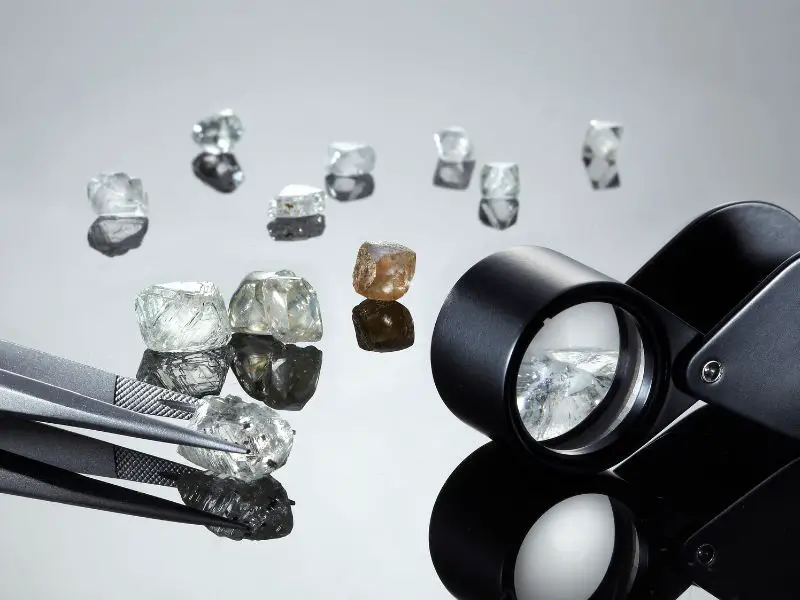
3. Recycled Metals or Ecological Gold
We must recycle as much as possible and support brands that strive toward a circular economy. However, recycled gold has issues, such as no assurance that it was not harvested unlawfully or related to human rights violations or corruption. When you can, always opt for ecological gold.
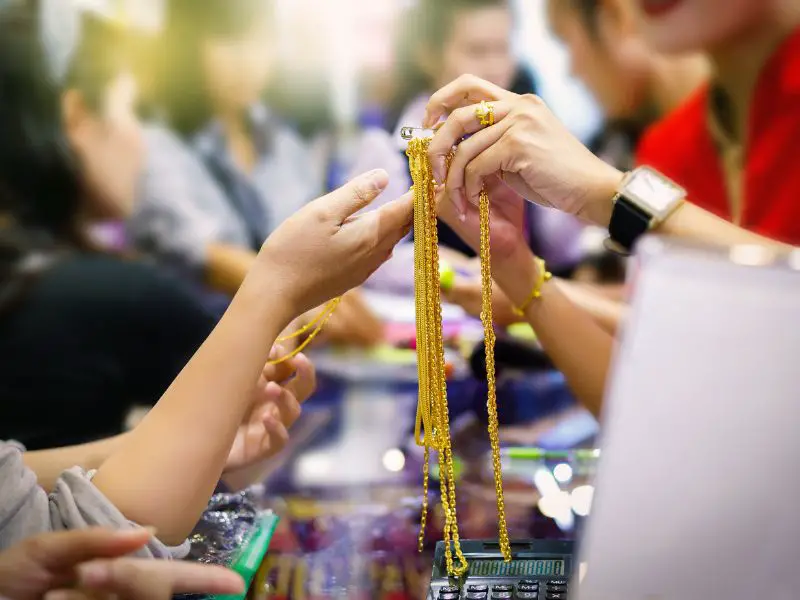
4. Durability
If you like gold, we suggest you prioritize solid gold when purchasing jewelry since it is made to endure and will not rub off or change color over time. In the jewelry industry, gold plating or vermeil tends to be less expensive and not as long-lasting. However, when purchasing gold plated or vermeil, ensure that the gold has been obtained sustainably. For a cheaper and more durable option, you can choose silver.

5. Vintage / Secondhand Items
Fine jewelry, however, can get even more beautiful and valuable with age, unlike clothes, which lose their color over time. And, of course, since no new materials are needed to make a fresh piece, this is one of the most sustainable-friendly options!
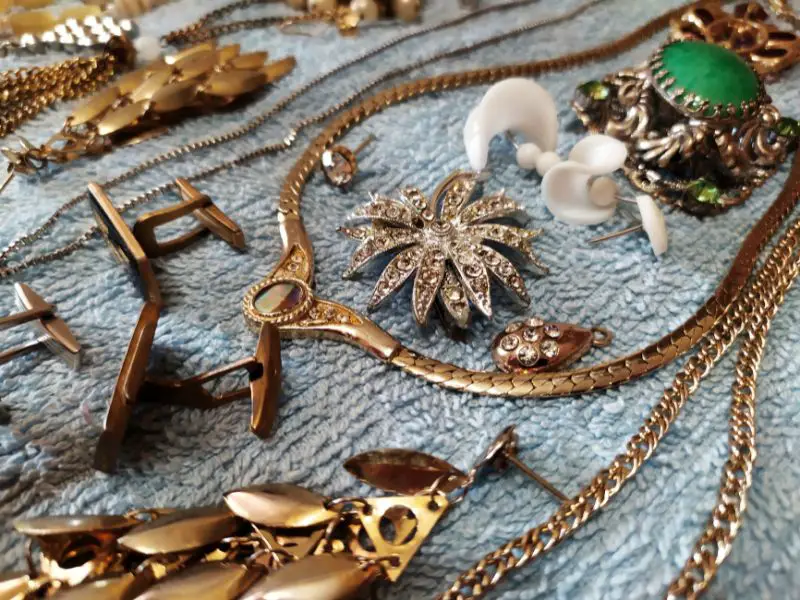
6. Sustainability
Purchasing materials that have been ethically and environmentally sourced is the only way to support these companies in the long term. As these materials are sourced from reputable, sustainable vendors and manufacturers, products usually have a longer life cycle and a higher resale value after being purchased.
7. Ethics
When buying jewelry, especially a piece of art like a watch or a ring, it’s essential to ensure that it has been sustainably made. With sustainability often comes transparency. Another critical point to look for is fair trade certification. This ensures that the person or factory making the jewelry has a just working environment and pays their workers a fair wage.
8. Packaging
Common jewelry packing materials include virgin materials, PU leather, and plastic. Buy from companies that use recyclable or biodegradable packaging, such as recycled cardboard or Forest Stewardship Council (FSC)-certified paper.
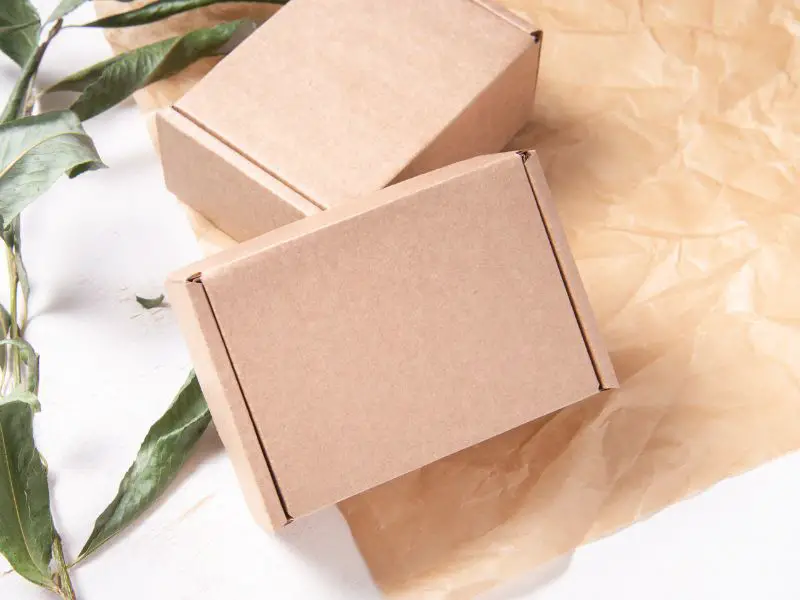
Take action today, and learn more about sustainability: Sustainable Fabrics, Sustainable Packaging, Sustainable Apps
Top Sustainable Jewelry Brands
1. Mejuri
Mejuri offers a selection of unique rings, earrings, necklaces, and bracelets made by skilled artisans in countries like Italy, India, South Korea, and more, all at prices well below the norm for luxury goods. Cultured freshwater pearls, natural mineral stones, and diamonds obtained from responsible vendors, you name it, Mejuri adheres strictly to sourcing ethically.
2. SOKO
With the support of SOKO, a fair trade jewelry company, artisans can establish their passions, aim for progress, and steadily raise their income. By using SOKO’s mobile applications, Kenyan craftspeople have access to a broader customer base, a more reliable source of income, and the ability to grow their enterprises and pursue new opportunities ( SOKO artisans earn 500% more than the average craftsmen in Kenya).
3. AUrate
AUrate, a New York City-based company, creates exquisite, delicate gold jewelry (including engagement rings) from 100 percent recycled gold! Inspired by New York City landmarks such as old building doorknobs and the Brooklyn Bridge, this collection’s eco-friendly, stylish items are ideal for a modern lady. Crafted by artisans of the seventh generation (yep, seven), you’ll look and feel your best wearing AUrate. You exceed expectations will exceed in every way.
4. Cat Bird
Catbird, a women-owned business, produces all of its jewelry in-house at the Brooklyn Navy Yard. With over 40 properly compensated jewelers and artisans on-site, the team creates exquisite, delicate, and gorgeous jewelry for daily use and beyond. All items are crafted with recycled gold, conflict-free, and ethically sourced gemstones. In addition, the Catbird Giving Fund donates one percent of not by profits but all sales to sustainable causes such as the ACLU and the New York Food Bank.
5. Cuyana
We have always liked Cuyana’s commitment to its “fewer, better” concept, which sees the company diverting from mass manufacturing in favor of high-quality craftsmanship and design. Its new jewelry collection is understated and stylish enough to be worn from 9 to 5, and you can even buy hoops with removable decorations like pearls and rose quartz to customize them to your outfit. Create an instant impression of sophistication with no effort.
Author’s Note
We hope this article has aided you in better understanding sustainable jewelry and how you can do your part by being aware of what you are buying. Consumers have begun to demand more sustainable products with the rise in sustainable shopping. And companies have responded by launching sustainable lines.
For people with some awareness of sustainable fashion or who have a specific interest or passion for sustainable jewelry, we hope this inspires you to pursue your passions and interests further! Do you prefer buying sustainable or ethical jewelry? Comment and let us know your thoughts!

